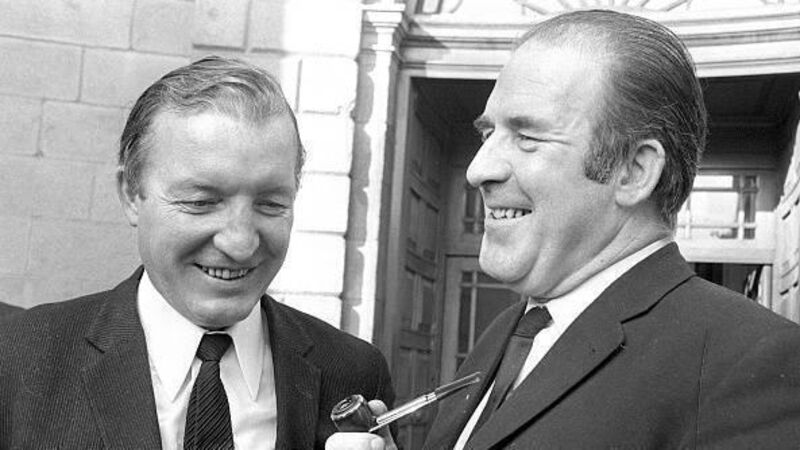We should cherish our independent institutions

Charles Haughey and Neil Blaney at the Four Courts during the Arms trial, circa October 1970. The Office of the Director of Public Prosecutions was established in 1974 after criticism of the prosecution of Charles Haughey. Picture: Tom Burke/Independent News And Media/Getty
One of the many lamentable features of US president Trump’s second term is the way in which constitutional devices — some of which have had limited presidential power, for nearly two and a half centuries — have failed to work.
To take only two examples, he recently fired a member of the non-partisan Bureau of Labour Statistics and in January, the Supreme Court will examine whether the president has the power to dismiss a member of the Federal Reserve board, to which critical authority in promoting the stability of the financial system is entrusted and which enjoys quasi-constitutional status.













